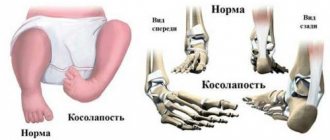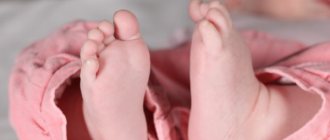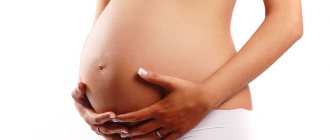In a small child, from the moment of birth until the age of three months, the process of formation of the digestive system and the normalization of the production of liver enzymes and gastric juice are completed. For this reason, food entering the stomach is not able to be completely digested. This leads to fermentation, which causes gas in the newborn: we will consider what to do in such a situation later in the article.
Why do gases appear in infants?
In addition to physiological reasons, there are other factors that influence the occurrence of gas in a newborn, including:
- Violation of the feeding regime of a newborn. Frequent breastfeeding and overfeeding lead to the fact that food does not have time to be absorbed, and fermentation begins in the stomach.
- Failure to maintain an appropriate diet by a nursing mother means consuming foods that cause excessive gas formation.
- Incorrect position of the baby when feeding. The baby's head should be elevated and the nipple should be tightly wrapped around the lips.
- Air getting into the nipple of a bottle during artificial feeding. It is necessary to ensure that the nipple is completely filled with liquid.
- Tight swaddling or a small diaper that squeezes the tummy.
- Prolonged crying or screaming of the baby.
Statistics indicate that problems with gas formation are more common in premature babies, women who smoke during pregnancy, and in a tense emotional atmosphere in the family.
Causes of gas leaks
It is very easy to recognize that a baby is being tormented by gas.
The child begins to scream sharply, pull his legs up to his tummy, twist them from side to side, and show increased anxiety. Then it temporarily becomes silent, but after a while the situation repeats itself. And this can last all day and all night. So that the mother does not lose calm and strength, she must immediately find and eliminate the cause of the accumulation of gases in the child.
1. Poor nutrition for a nursing mother
If the baby is breastfed, then the mother should remember which foods tend to form gas. Increased gas formation in a newborn baby can occur when a nursing mother eats the following types of food:
- flour products;
- legumes;
- White cabbage;
- carbonated drinks.
A large amount of sugar consumed by the mother can also cause gas in the infant. There is also an opinion that tea with condensed milk improves lactation - this is not true, any warm drink, even plain water, increases lactation. And condensed milk is concentrated sucrose; when consumed, be prepared for a painful reaction from the baby.
Here is a list of products approved for use during breastfeeding
2. Incorrect attachment to the breast
When breastfeeding, you need to position the baby correctly at the breast. If you apply it incorrectly, the baby will catch air. Also, watch your posture during feeding; position the baby so that the baby’s head is higher than the body.
Read how to apply to the breast correctly
3. If you are bottle-fed, make sure that the nipple on the bottle is constantly filled with formula. Otherwise, the child will suck in air.
4. Additional reasons for the occurrence of gas leaks. Tight swaddling, tight elastic band on the diaper, crying and screaming of the child.
Signs that your baby has gas
Symptoms of gas formation in a child appear 30 minutes after feeding. They can be determined by the baby’s behavior:
- the baby cries, pulling his legs towards his tummy, and behaves restlessly;
- with severe pain, the child’s cry becomes loud and sharp;
- frequent belching;
- regular regurgitation of undigested masses with a sour odor;
- the abdomen increases in volume and becomes hard;
- the appearance of red spots on the face;
- disruption of the process of bowel movements and stool contents;
- the child calms down after passing gas or defecation.
How to distinguish gas from colic
To understand what to do with colic and gas in newborns, you first need to distinguish one from the other. Both phenomena relate to disorders of the functional functioning of the digestive organs of the infant. Increased formation of gases in the intestines (flatulence) appears due to the immaturity of the child’s gastrointestinal tract, deficiency of enzymes and their weak activity.
Colic is a consequence of gas formation and is expressed by spasms and pain when the intestinal walls are tense.
Important: With timely removal of gases, the likelihood of colic occurring is minimized.
When you need medical help
Colic in a child in the first months of life is one of the most common problems.
In a broad sense, this condition represents pain of varying degrees of intensity, provoked by the formation of an increased amount of gases in the intestines.
Colic can be a natural reaction of the baby's digestive system or a sign of dysfunction.
This condition can be eliminated in several ways, but the factor that provoked it must be identified. We will talk about the symptoms of colic in newborns in this article.
If flatulence is accompanied by fever or severe diarrhea, you must call a pediatrician or an emergency room. These symptoms indicate an intestinal infection.
In what other cases should you consult a doctor:
- pale skin, dryness;
- absence of stool for more than three days;
- vomit;
- refusal of food;
- inability to suck;
- breathing problems;
- there is green-yellow mucus and/or bloody discharge in the stool.
Also, the help of a doctor is necessary if the usual set of measures to relieve spasms does not help. If the baby screams louder or with unusual intonations.
In what cases should you not warm the diaper for massage, but rush to the doctor:
- the child has a fever;
- problems with stool do not fit into the “everyday”: stool is an unusual color, has a bad smell;
- vomiting joined the colic;
- the baby does not calm down for too long;
- the baby is lethargic and pale, has weak reactions;
- Even after the attack stops, the baby does not look healthy.
Effective ways to help your child
To relieve the baby from suffering and alleviate symptoms, mothers use the following methods:
- After feeding, hold the baby in an upright position for some time until a burp appears and the air trapped in the esophagus comes out.
- Light massage. Gently stroke the tummy with the palms of your hands in a clockwise direction, without making any effort. Bend the legs and pull them towards the baby's stomach. Such actions will help the intestinal muscles relax, and gas will pass freely.
- Placing the baby on his tummy. You can do this in your crib, on a changing table, or on your lap. This way the procedure prevents the formation of gas, it is recommended to carry it out before feeding.
- Gas outlet tube. The tip is lubricated with baby oil and carefully inserted into the anus of the newborn, who is laid on his back with his knees pressed to his chest. This method is not addictive, but you should not abuse it.
- Warm heating pad. It is better to use a salt heating pad, but a regular one will do. Heated to a comfortable temperature for the body, the heating pad is placed on the tummy. The pain gradually goes away, the accumulated air bubbles move through the relaxed intestines and come out freely.
- Dill water. A decoction is prepared from dill, chamomile or fennel seeds. Preparations based on them are sold in pharmacies.
- Gymnastics. A special set of exercises is performed daily and is an effective preventive measure to combat gas formation.
- Water procedures. Bathing in warm water with a decoction of the string will calm the baby, active movements will help the intestines get rid of gases.
- Cleansing enema. It is used in extreme cases, if the situation is complicated by constipation. If the baby has not defecated for two days, it is necessary to clean the intestines using a syringe.
For the procedure, boiled water is used, heated to a temperature of 40C, the smallest enema with a rubber tip is filled with it, lubricated with oil and inserted into the anus. Then they squeeze the baby’s butt for a few seconds so that the water has time to soften the feces. This method is used with caution, as it can harm the functioning of the child’s intestinal tract.
Gymnastics for babies begins in the second week of life. Conduct before feeding 30 minutes daily. The whole set of exercises takes 5 - 10 minutes. It is recommended to do exercises in the first half of the day, in a ventilated room, the temperature in which is maintained at 21C.
Exercises while lying on your back. They start by stroking the tummy, gradually moving to the shoulders, arms and legs. At the same time, pull the legs bent at the knees towards the stomach, hold for a few seconds and return to the starting position. Repeat 10 times.
Placing a baby on his tummy is considered a mandatory exercise for infants. This is an effective way to relieve your baby of gas and colic and learn to lift and hold his head. Begin to perform the exercise for a few seconds at first, then the time is gradually increased to 4 - 5 minutes.
Rocking. Place the child in the fetal position - bend the legs at the knees, press them to the stomach, place the hands on the chest. In this position, rock the baby from side to side for 10 - 15 seconds. Take a break for 10 seconds and repeat 3 more times.
Traditional therapy methods
Medicines prescribed by pediatricians to treat the problem:
- Probiotics - “Linex”, “Acipol”, “Bifidumbacterin”, “Dufalak”. Used for disturbances in the bacterial balance of intestinal microflora.
- Enzymes - “Maxilact”, “Tilactase”, “Lactase Baby”, “Hilak Forte”. Used for deficiency of enzyme elements involved in the digestion of breast milk.
- Carminatives - "Simethicone". “Sab Simplex”, “Bobotik”, “Espumizan Baby”. They break down large gas bubbles into small ones, help remove them from the body, and reduce pain and spasms.
- Natural preparations based on medicinal herbs - “Plantex”, “Bebinos”, “Dill water”.
Self-medication can harm the child; all medications are prescribed after consultation with the attending physician. Take the product in accordance with the dosage and storage conditions indicated in the instructions. Bottles of drugs for treating children are equipped with a dispenser to accurately determine the required volume.
Gases in newborns during breastfeeding
Mothers of first-borns and experienced mothers are warily waiting for the period when gas appears in newborns while breastfeeding. This condition causes a lot of inconvenience to the baby and greatly worries the parents.
Table of contents
|
Experts are confident that infants suffer less from gases than artificial babies. They absorb less air when feeding and control the amount of food they eat.
What is the reason for the accumulation of excess gases?
Gas appears during the digestion of breast milk. Once in the intestines, it provokes excessive pressure, which causes pain in the child.
There are many reasons why there is too much gas in the intestines. Let's talk about all of them.
Cry
When a baby cries for a long time, he swallows a lot of air. The reason for crying can be excess gases in the newborn, and in the process, he again absorbs excess air, which leads to further deterioration of the situation.
Incorrect feeding process
If a baby does not latch well, he may take in excess air while feeding.
Food sensitivities or allergic reactions
It happens that a child is overly sensitive to foods eaten by his mother. For example, milk, onions, cabbage and all derivatives increase gas formation.
The mother can track the baby's reaction to certain foods.
If excluding them from the diet will help your baby, it’s worth doing so. A food diary will help you identify foods at risk. You should write your menu in it every day.
Immaturity of the digestive system
In the first months after birth, the baby's intestines continue to develop and improve.
He still has to learn how to effectively cope with incoming food, gases, and regulate stool.
In addition, gases can accumulate due to immature microflora, improper carbohydrate metabolism, hormone regulation, and constipation.
Excess lactose
As you know, breast milk comes in both fore and hind milk. The first contains more lactose and sugar. The second contains fat.
If the baby drinks more foremilk, the body becomes oversaturated with lactose. Because of this, excess gases are formed and whims appear.
To prevent this from happening, it is better to give the baby a second breast only after the first one has been emptied.
Lactose deficiency
Experts believe that insufficient amounts of the lactose enzyme can also cause colic. After all, it is necessary for processing lactose itself.
Binge eating
It is difficult for the digestive system to digest excess milk, which leads to certain problems. You should avoid overfeeding your baby.
The emergence of new food
When introducing new foods, certain difficulties may arise in the intestines and gas formation may increase.
Especially if the new products contain a lot of sugar. These include, for example, juices.
Microbial imbalance
For proper digestion, the body must have enough beneficial bacteria to help quickly process food.
Eating lactobacilli helps reduce gas formation.
Older kids will benefit from yoghurts that contain probiotics.
.
How to understand that a baby is being tormented by gas
Most newborns suffer from excessive gas formation. How can you tell if your baby is being fussy because of gas?
There are several signs:
• Bloating. If your baby's tummy is swollen, this may indicate excess gas in the intestines, which causes pain and discomfort. Gases can even trigger cramps.
• Regurgitation. Might be normal. However, gases accumulated in the body also contribute to regular regurgitation.
• Belching. Should be after every baby's meal. Excessive burping, accompanied by hiccups, may be a cause for concern.
In this case, the baby most likely took in too much air when attached to the breast.
• Flatulence. If your baby is passing air more than 20 times a day, there may be too much air in the intestines and the milk is not being digested enough.
The reason may be the immaturity of the digestive system. Also, flatulence, and in some cases diarrhea, can be caused by excess bad bacteria in the intestines.
In this case, you need to consult a pediatrician.
• Unnecessary whims. Newborns may cry for several reasons. From hunger, thirst, pain, fatigue. However, crying with colic can be recognized by special signs.
It becomes sharper and louder, the face turns red, the fists clench, and the legs are pulled up to the stomach. The baby makes grunting sounds. You can also recognize whims with colic by frequency.
If a baby cries for more than three hours a day, he most likely has gas.
• Poor sleep. If your baby is in pain and discomfort, it is more difficult for him to fall asleep. He often wakes up and cries.
How to help your child
There are popular methods that parents can use to improve their child's well-being.
Massage
This is one of the most popular ways to deal with gas. The procedure is carried out half an hour after eating or at a time when the baby is suffering from excess gas.
Medicines
As a rule, parents use 3 types of drugs: simethicone, probiotics, homeopathic medicines.
• Simethicone is designed specifically to combat excess gases. Thanks to the drugs of this group, scattered gases are combined and removed from the body.
The disadvantage of such drugs is the presence of artificial colors, flavors, and special fillers.
• Probiotics provide relief when used regularly. However, they are better suited for older children when it comes time for complementary feeding. And by this time, most babies have problems with gases.
• Homeopathic medicines are considered natural, harmless and effective for infants..
Swaddling
Pediatricians have different opinions about swaddling, previously accepted for all newborns. But supporters of swaddling believe that this method is calming and reminds him of his mother's womb, where he feels safe.
Dummy
This method has been often criticized lately, but is effective. The baby's anxiety most often goes away when he is given a pacifier.
Rocking and walking
Excess gas comes out easier when moving. Rocking your baby back and forth can help him calm down. Regular walks are also helpful.
Rocking the stroller and fresh air bring peace and promote the release of gases.
Useful tips for mothers: BABY HEALTH
Bathing
Bathing in a warm bath helps children get rid of anxiety. Especially if you add special oils to the water.
For example, lavender or chamomile. You can also dilute the water with herbal infusions.
Prevention measures
Prevention can make your child's life easier.
• Proper feeding technique is important. The baby should fully latch onto the nipple so that there is no extra room for swallowing air.
Its head must be above the abdomen. It's better to hold it constantly.
• The child should not cry for a long time. The faster you calm him down, the less excess air he will take in.
• After each feeding, you need to hold the baby upright for a while so that he releases excess air. Only after this can you put him to bed.
What does Dr. Komarovsky advise?
The pediatrician emphasizes that gas and colic are common in babies and will go away in a few months.
It is associated with the formation of the intestines and its ability to withstand external threats that the baby will inevitably face.
After going through this period, the newborn’s body will be resistant to viruses, harmful bacteria and other dangers.
The body is rebuilt after a complete change of diet and adapts to mother's milk. When he gets used to the new food, the colic will go away on its own.
The main sign of colic is the baby crying for no reason. Most often it appears closer to bedtime at night. It can last for hours. Even if the child is fed, changed and completely healthy.
During this difficult time for the baby, the emotional atmosphere at home is important. The child feels the mother’s confusion and cries even more.
It is important to regain composure and understand that gas is not a disease, but a natural condition that all children go through, and it will soon pass.
About treatment
The doctor is sure that there is no need to treat excess gas. And no means will help at this time.
The pediatrician calls medications produced for colic a marketing ploy by the pharmaceutical industry. They do no harm. But the only benefit from them is the complacency of parents.
The danger lies in the use of gas vent pipes. If used incorrectly, they can cause intestinal damage. And such cases are not uncommon.
About constant motion sickness
There are babies who are soothed by motion sickness. But if the method does not work, you should not constantly carry the child in your arms.
It’s easier to spoil him and make life even more difficult for yourself.
About overeating
Offering your baby something to eat every time he cries is a mistake. This will lead to overeating and even more gas accumulation.
It is worth using other methods. For example, supplementation or massage. On the contrary, it is better to make the breaks between meals longer.
About the mother's diet
The appearance of colic does not depend on the mother's diet. Even if you adhere to a strict diet, you will not be able to protect your baby from this process.
But the mother will deprive herself of strength and joy from delicious food. It will be much more beneficial for the child if there is a happy mother next to him, and not a mother exhausted by diets.
About lying on your stomach
To strengthen the abdominal muscles, you can place the baby on his stomach.
However, it is better not to leave him alone in this position and under no circumstances put him to sleep on his stomach. This is dangerous for the child.
It is in this position that babies are more likely to suffer from sudden infant death syndrome.
Recommendations
• First of all, we need to get through this time together. Mothers and fathers must decide together how to establish a routine for a new family member and what measures to take to alleviate his condition.
The mother should not take all the care of the child onto herself. This will divide the family and may even lead to divorce.
• You need to learn how to properly massage your baby. This will certainly make his condition easier.
The best time for massage is between feedings. Duration – from 5 to 10 minutes.
• Overfeeding and overheating of the child should be avoided. In these conditions he is much more susceptible to gas and colic.
• The baby will feel much better with a clear and correct regimen.
Eating in moderation, walking, cleaning, airing and moistening the room will have a positive effect on his health.
Gases bother most babies. However, it is within the power of parents to take preventative measures.
The correct regimen and adequate attitude to the problem will help you survive it, maintaining your nerves and a good atmosphere at home.
The main thing to remember is that this is not a disease, but a temporary phenomenon that will soon pass. At the same time, the baby will adapt to the new diet and will happily explore the world around him.
- about the author
- Recent publications
Arina Nagovitsyna
author of the publication (site editor)
JOURNALIST Higher education: Faculty of Journalism and Mass Communications
Arina Nagovitsyna recently published (see all)
- What can a child at 3 months - 09/12/2019
- What a 2 month old baby can do – 09/11/2019
- Which formula to choose when mixed feeding - 09/10/2019
Gas in breastfed babies
The main prerequisites for the appearance of gas in infants are considered to be disturbances in the mother’s diet. To save a newborn from painful suffering, pediatricians advise:
- follow a diet for breastfeeding women;
- do not overfeed your baby with breast milk;
- observe feeding and sleeping patterns;
- do not overheat the child by dressing him in warm clothes or wrapping him in blankets;
- perform simple physical exercises, gymnastics;
- arrange water procedures, teach swimming;
- do a tummy massage;
- walk outdoors more often.
When overfeeding a baby, an excessive amount of food will increase the load on the digestive organs and lead to the accumulation of food masses and their fermentation.
Insufficient activity causes stool to stick together, leading to constipation and gas formation. Swimming, gymnastics, and walks stimulate the intestines and increase their peristalsis.
Special diet for mothers with breastfeeding
Gases in newborns who are breastfed may appear due to poor nutrition of the mother. To eliminate this problem, a nursing mother needs to review her menu and exclude foods that cause increased gas formation from the diet.
These include:
- carbonated water, kvass, sweet drinks;
- cabbage in any form;
- radishes, tomatoes, cucumbers;
- peas, beans, chickpeas, beans, lentils;
- grapes, apples, pears, plums;
- baked goods, muffins, biscuits, fresh bread;
- eggs.
The reason for the formation of gases in many cases is not individual products, but their combination. An example is the simultaneous consumption of fresh bread and kefir or yogurt, cereal porridges and whole milk.
A woman breastfeeding a child must follow the following rules in organizing her diet:
- exclude fried foods from your diet, replace this cooking method with boiling, baking, stewing;
- do not drink food while eating;
- in the evening, eat no later than three hours before bedtime;
- limit consumption of raw vegetables;
- do not abuse spices and seasonings;
- exclude alcoholic and low-alcohol carbonated drinks, beer;
- chew food slowly, without swallowing excess air;
- limit foods with excess sugar content, which causes fermentation in the stomach;
- give up strong coffee and tea;
- introduce new foods into the diet gradually, starting with small portions, observing the baby’s response.
How to avoid gas in children on IV
When artificial feeding, the cause of gassy may be an irregularly shaped nipple or formula for feeding.
It is recommended to choose a nipple that is anatomically close to the natural shape of the mother's breast nipple. The baby wraps his lips tightly around it, excluding the swallowing of air during feeding.
The hole must be of the appropriate size for comfortable flow of the mixture. Such that the child does not experience difficulties when sucking it out of the bottle or does not choke.
The mixture can also provoke gas formation, since even the highest quality composition cannot replace natural mother's milk. Many parents have to try several brands and manufacturers of baby food before finding a suitable option.
The following points can complicate the situation:
- violation of dry food storage conditions;
- failure to follow the instructions for preparing the mixture;
- interval between meals;
- temperature of the finished feeding mixture.
Depending on the age, the appropriate concentration is prepared according to the attached recipe. Unfinished ready-made formula cannot be stored and used at the next feeding.
Should you always see a doctor?
The appearance of gas in the first three months of a newborn’s life is a common occurrence that normalizes by six months. If the situation does not change, the child continues to suffer from increased gas formation, parents should contact their pediatrician.
Consultation with a specialist is necessary in the following cases:
- temperature rise above 38 C, fever;
- green color of stool;
- stool with blood particles, flakes or mucus;
- frequent vomiting, profuse regurgitation;
- refusal to eat;
- anxiety when touching the tummy;
- lethargy, drowsiness;
- pale skin;
- cyanosis of the nasolabial triangle;
- sunken eyes, darker circles under them.
Discomfort in the intestines can be a signal of the development of a serious abnormality in the functioning of the gastrointestinal tract, volvulus, or nervous disorders. Timely examination will allow you to exclude the disease or start treatment on time without possible complications.
Gases accumulate in a child during the period of adaptation of his digestive organs to the intake and digestion of food. After three months, this process will stabilize and will no longer bother the baby, who will be able to cope with bloating on his own.
What parents need to know about colic to stay calm
Everyone says my baby will have colic, is it true?
No, it is not at all necessary that your baby will have colic. According to statistics, this problem affects on average about 20 percent of all newborn children. Colic begins around the second week of life and can last up to four months. How to understand that it is colic?
How to understand that it is colic?
Colic can indeed be confused with other uncomfortable conditions in a child - overheating, fatigue or hunger. However, if the doctor has ruled out all possible health problems for the child, he is fed, and the diaper is clean, then most likely the cause of prolonged crying that occurs for no obvious reason is colic. There is also the so-called “rule of three”, which can help determine whether a baby has colic: if a baby cries for no obvious reason for more than three hours a day, at least three times a week, and this has been going on for at least three weeks in a row, it is colic. It is important to note that colic is not accompanied by any problems with growth or weight gain. If a child has these problems, it is necessary to consult a doctor to find out their causes.
Why does colic happen?
Among parents, there is an opinion that the cause of colic is exclusively increased gas production. Indeed, excessive gas formation in the baby’s digestive tract, as well as the air he swallows during feeding, puts pressure on the intestinal walls and causes unpleasant painful sensations. But colic is complex, and there are many other causes of colic. For example, spasms and impaired motility of the maturing gastrointestinal tract, excessive stimulation of the baby's senses (too noisy, bright, crowded), the process of development of the nervous system, as well as the formation of dense stools can accompany the growth and development of a healthy child. Despite the inconsolable, prolonged crying, the colicky baby eats well between attacks, sleeps and looks cheerful. However, even if you are sure that the baby has colic, be sure to consult with a specialist so that he can determine the exact cause of the baby’s anxiety and rule out the presence of any diseases.
If the baby is bottle-fed, can formula cause colic?
The mixture itself is not the cause of colic. However, an incorrectly selected diet can actually provoke the appearance of unpleasant sensations in the baby’s intestines. So, if a child has a temporary lactase deficiency, then the body does not completely break down the lactose supplied with food, which leads to the accumulation of lactose in the intestinal lumen and excessive painful gas formation. Therefore, if a formula-fed or mixed-fed baby has any functional digestive disorders, a specialist can recommend a “comfort” formula.
Is colic dangerous for your health?
Colic is not dangerous for the child’s health, it is physiological in nature and should go away on its own, but it does cause the child a lot of unpleasant sensations. The main problem of colic is the impact on the psychological state of parents, who during this period may experience outbursts of anger, attacks of impotence and panic. Remember: it is not your fault that your baby has colic. The main mantra for you during this period should be the phrase: “This will definitely pass.”
What helps with colic?
To relieve colic in a baby, there are a number of recommendations, so-called “physical methods,” that will help the baby calm down and reduce discomfort. These include:
● light tummy massage clockwise;
● placing the baby on his tummy. Attention! Carefully monitor the child’s breathing, do not leave him unattended;
● white noise, recordings of which can be found in special applications for smartphones, but a hairdryer turned on will also work as an emergency measure;
● a pacifier (yes, sometimes this is not forbidden - non-nutritive (that is, having no nutritional value) sucking often calms children);
● gentle rocking in mother’s arms or in a cradle;
● warmth on the tummy, for example, a warm diaper;
● wearing in a column after feeding;
● swimming.
What not to do if your baby has colic?
Specialist consultation required
You should not give your baby any herbal decoctions, even if the grandmother insists. Firstly, this is fraught with an allergic reaction, secondly, you can never be sure of the quality of herbs, and thirdly, children simply do not need all this - all decoctions are more likely to calm the child’s family, not the child himself.
Do not give rice porridge and concoctions. The time for complementary feeding, of course, has not yet come. In addition, it is simply harmful for the digestive system that has not yet matured - food that is heavy for a child will only aggravate the load on the gastrointestinal tract.
Do not give your baby antispasmodics and antihistamines (that is, antiallergic) drugs - this can be dangerous.
Do not overdo it with medications against increased gas formation.
The colic was dealt with, but now he is spitting up. He also has constipation. This is fine?
Let's get this straight: spitting up is a common occurrence in a baby's life between 3 weeks and 12 months. Up to 87 percent of babies under one year old burp at some frequency, and some of them spit up up to 12 times a day. This usually happens because the child either ate too much or put too much effort into the process, for example, because he was very hungry and in a hurry. If regular regurgitation is repeated frequently or the child regurgitates more than half of the milk consumed, then you should definitely talk to a specialist about this. As for constipation, the incidence is lower in breastfed children compared to bottle-fed children. Typically, a child under 4 months of age has an average of 7 to 1 bowel movements per day, from 4 months. up to 2 years – from 3 to 1 bowel movements. The frequency of bowel movements, even in babies, is a completely individual matter. A healthy baby owes nothing to anyone. If a baby receives a standard formula, most likely his stool frequency will be less than that of an infant, and this is explained by the fact that breast milk has a number of important components that affect the consistency of the stool. A bottle-fed baby's stool is thicker than that of a baby (the consistency resembles thick cream or peanut butter). When the stool becomes more dense, and the child himself is worried during bowel movements, we can talk about constipation. In this case, you need to consult a specialist and, possibly, select a mixture that contains active ingredients that provide soft stools.
The material was prepared by the editors of NEN together with Nutriclub. Specialist consultation is required. Breast milk is the best nutrition for young children.











